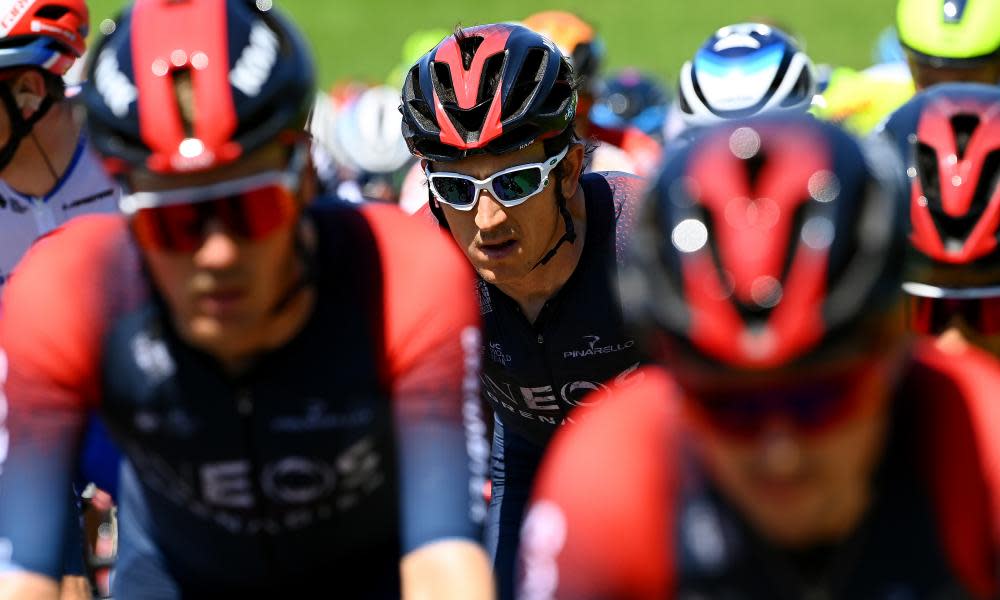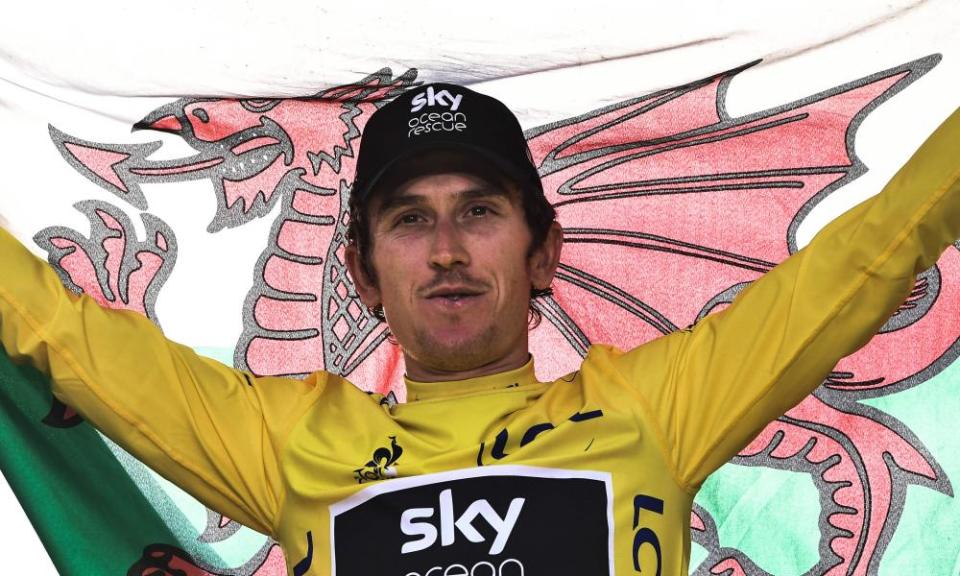Geraint Thomas out to cap comeback with another tilt at Tour de France

In July 2019, high in the French Alps, a subdued Geraint Thomas sat unnoticed among the wheelie bins outside the media centre in Val Thorens. A few yards away his teammate Egan Bernal celebrated his first Tour de France victory. The Colombian, then cycling’s fastest rising young talent, had started the Tour as a support rider to the Welshman as defending champion.
A winter spent celebrating his own Tour win the previous year had done just enough to blunt Thomas’s powers. Undercooked, he finished second overall to Bernal in Paris and was left to rue what might have been in a Tour that looked as if it might be his last opportunity, with Bernal set to dominate for years to come.
Fast-forward three seasons and Bernal, the last Team Sky or Ineos rider to win the Tour de France, is out of the picture and Thomas – in peak form – is a contender again. Leading Ineos Grenadiers in this year’s Tour, Thomas proved there is life in the old dog yet with a perfectly judged win in the Tour of Switzerland.
Bernal, meanwhile, is still building back his strength after a horrific pre-season training crash in his native country. Instead of the Colombian, it is Tadej Pogacar who is dominant and with two Tour titles already the Slovenian prodigy looks the rider to beat this year.
Thomas’s timing is perfect in several ways. His Ineos Grenadiers team need him and also need to rekindle past Tour glories. In Bernal’s absence, Richard Carapaz assumed leadership, finishing third in last year’s Tour and second in this year’s Giro d’Italia, faltering in the penultimate mountain stage.
The Ecuadorian may be on his way to another team and the spate of success Ineos enjoyed in this year’s Spring Classics suggests that, after winning the Amstel Gold Race and the coveted Paris-Roubaix the team may have switched emphasis. Thomas’s revived leadership will remind them of their Tour de France heritage.

Since Bernal’s Tour win, Ineos Grenadiers, like every other team in Grand Tour racing, have been sent flying by the whirlwind that is Pogacar and, to a lesser extent, his compatriot Primoz Roglic. In intervening seasons, Ineos have won the Giro d’Italia through Bernal, but that was achieved in the absence of the Slovenian duo.
Now Ineos turns once more to Thomas who, even at 36, remains an influential figure capable of galvanising their yellow jersey ambitions. He is also well suited to the dreaded opening week of this year’s race, which will be characterised by crosswinds, crashes and cobbles, and is fuelling more anxiety in the peloton than a summit finish on Everest.
The Copenhagen Grand Départ on Friday is one of the furthest flung of Tour de France starts and is likely to produce the usual chaotic and nervous opening forays. In the face of the unrelentingly aggressive racing that has secured Pogacar’s two Tour wins, Thomas has to survive these initial stages unscathed. He also has to stay upright – often a challenge in past years – and, as the Tour goes on, find his very best climbing legs, as he did when he won in Paris in 2018.
On past form, Roglic, winner this year of Paris-Nice and the Critérium du Dauphiné and a triple Vuelta a España champion, is the rider most likely to block Pogacar’s path. But like Thomas he has a habit of crashing, while Pogacar’s ability to negotiate the first week of the Tour unbloodied has been a significant advantage.
In 2020, Thomas was left out of the pandemic Tour, postponed to September. Worse was to follow when his Giro d’Italia ended after he hit a rogue water bottle on an Italian piazza and crashed heavily. Last July, he crashed yet again and struggled to a lowly 41st overall finish in Paris.
But this time around the feeling is that Pogacar will face more in-form rivals, such as Thomas and Roglic, than in previous years. They cannot outride him in the mountains or take time from him in time trials. Their chances will be limited and their hopes will rest more on experience, opportunism and tactical guile as on power outputs on the steepest inclines.
Thomas has the experience, intelligence and support to make him a genuine contender once more. “I go deep with everything, whether that’s a bike race – or going out on the piss,” he said during last year’s Tour. “That’s just the way I am.”
The question is whether he can go deep enough over the Tour’s three weeks to contain the irrepressible Pogacar, whose domination of the recent Tour of Slovenia gave a glimpse of what is to come.

 Yahoo Movies
Yahoo Movies 
